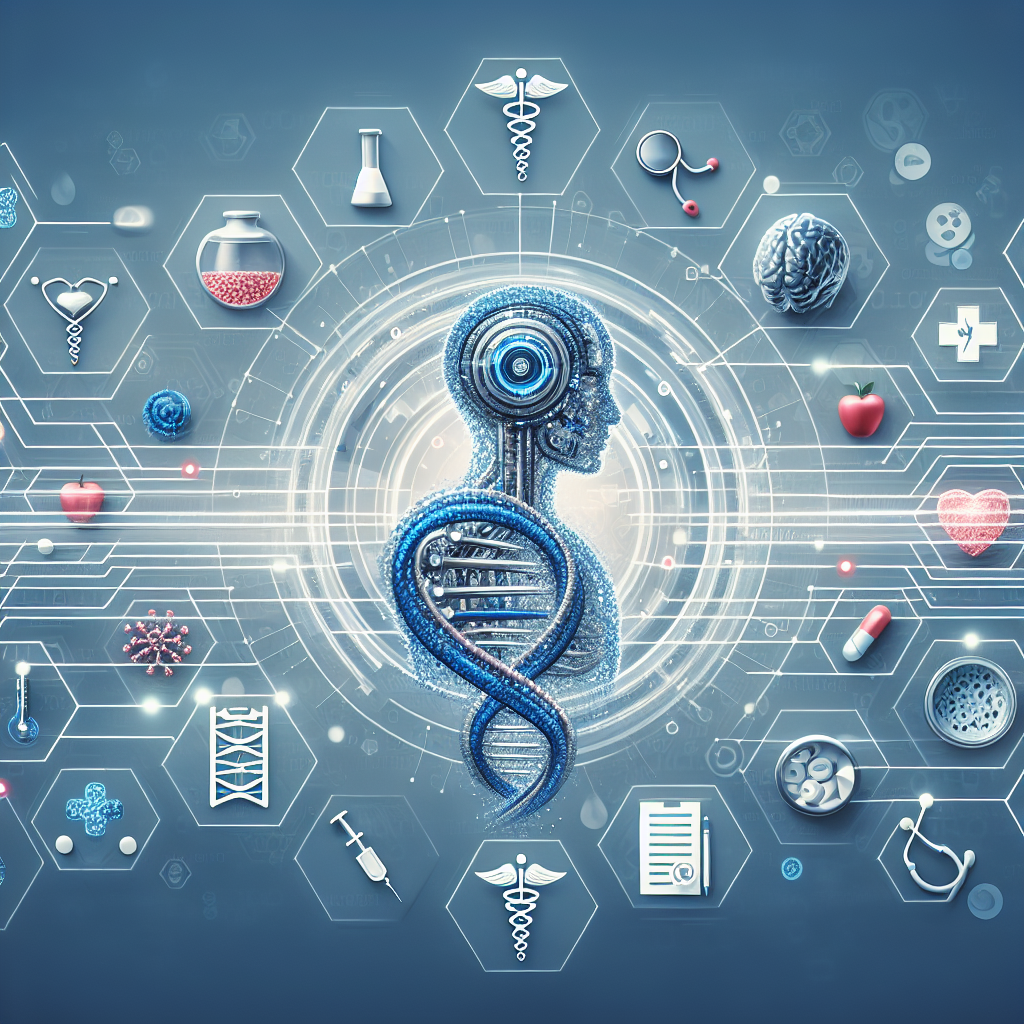Artificial General Intelligence (AGI) is a term that refers to the ability of a machine to perform any intellectual task that a human can do. In healthcare, the use of AGI has the potential to revolutionize the way medicine is practiced and improve patient outcomes. From diagnosing diseases to drug discovery, AGI has the ability to streamline processes, increase efficiency, and ultimately save lives. In this article, we will explore how AI is shaping the future of medicine and the impact it is having on healthcare.
AGI in Healthcare
The use of AGI in healthcare is already making significant strides in various areas of medicine. One of the most prominent applications of AGI in healthcare is in medical imaging. AGI algorithms have the ability to analyze medical images such as X-rays, MRIs, and CT scans with a level of accuracy that can rival that of experienced radiologists. This can lead to faster and more accurate diagnoses, which can ultimately save lives.
Another area where AGI is making a big impact is in drug discovery. Developing new drugs can be a long and costly process, but AGI has the potential to speed up this process significantly. By analyzing vast amounts of data, AGI algorithms can identify potential drug candidates much faster than traditional methods. This can lead to the development of new treatments for diseases that were previously untreatable.
AGI is also being used in personalized medicine, where treatments are tailored to individual patients based on their genetic makeup and other factors. By analyzing a patient’s genetic data, AGI algorithms can predict how they will respond to different treatments and medications. This can lead to more effective treatments and better outcomes for patients.
The Future of Medicine
The future of medicine is closely intertwined with the use of AGI. As technology continues to advance, the potential for AGI to revolutionize healthcare is only going to grow. From improving diagnostics to developing new treatments, AGI has the potential to transform every aspect of medicine.
One area where AGI has the potential to make a big impact is in predictive analytics. By analyzing data from electronic health records, wearable devices, and other sources, AGI algorithms can predict which patients are at risk for certain diseases or conditions. This can help healthcare providers intervene early and prevent serious health issues from developing.
AGI is also being used to improve patient outcomes by optimizing treatment plans. By analyzing data from clinical trials and real-world patient data, AGI algorithms can identify the most effective treatments for individual patients. This can lead to better outcomes and fewer side effects for patients.
Another area where AGI is making a big impact is in remote monitoring. With the rise of telemedicine and wearable devices, more patients are receiving care outside of traditional healthcare settings. AGI algorithms can analyze data from these devices and predict when a patient may need medical intervention. This can help healthcare providers intervene early and prevent serious health issues from developing.
Overall, the future of medicine is bright with the use of AGI. By harnessing the power of AI, healthcare providers can improve patient outcomes, streamline processes, and ultimately save lives.
FAQs
Q: What is the difference between AI and AGI?
A: AI refers to machines that can perform specific tasks that require human intelligence, such as image recognition or speech recognition. AGI, on the other hand, refers to machines that can perform any intellectual task that a human can do.
Q: How is AGI being used in healthcare?
A: AGI is being used in healthcare in a variety of ways, including medical imaging, drug discovery, personalized medicine, predictive analytics, and remote monitoring.
Q: What are the benefits of using AGI in healthcare?
A: The benefits of using AGI in healthcare include faster and more accurate diagnoses, faster drug discovery, personalized treatments, improved patient outcomes, and remote monitoring.
Q: Are there any risks associated with using AGI in healthcare?
A: While there are many benefits to using AGI in healthcare, there are also risks to consider, such as data privacy concerns, algorithm bias, and the potential for job displacement.
Q: What does the future hold for AGI in healthcare?
A: The future of AGI in healthcare is bright, with the potential to revolutionize every aspect of medicine. As technology continues to advance, the impact of AGI on healthcare is only going to grow.
In conclusion, AGI has the potential to revolutionize the way medicine is practiced and improve patient outcomes. From diagnosing diseases to drug discovery, AGI is shaping the future of healthcare in ways that were once thought impossible. As technology continues to advance, the potential for AGI to transform healthcare is only going to grow. By harnessing the power of AI, healthcare providers can improve patient outcomes, streamline processes, and ultimately save lives. The future of medicine is bright with the use of AGI, and the possibilities are endless.

